In the past few years, the safety of sunscreen usage has become a tremendously hot topic. And for good reasons: Most of the ingredients found in traditional sunscreens are incredibly bad for us.
Thanks to companies like BeautyCounter, we have safer options in the form of:
Sunscreen Lotion | Sunscreen Spray | Sunscreen StickThis is what ultimately lead me to share this short Beautycounter sunscreen review with you. No myths. No sales tactics. Just my honest review!
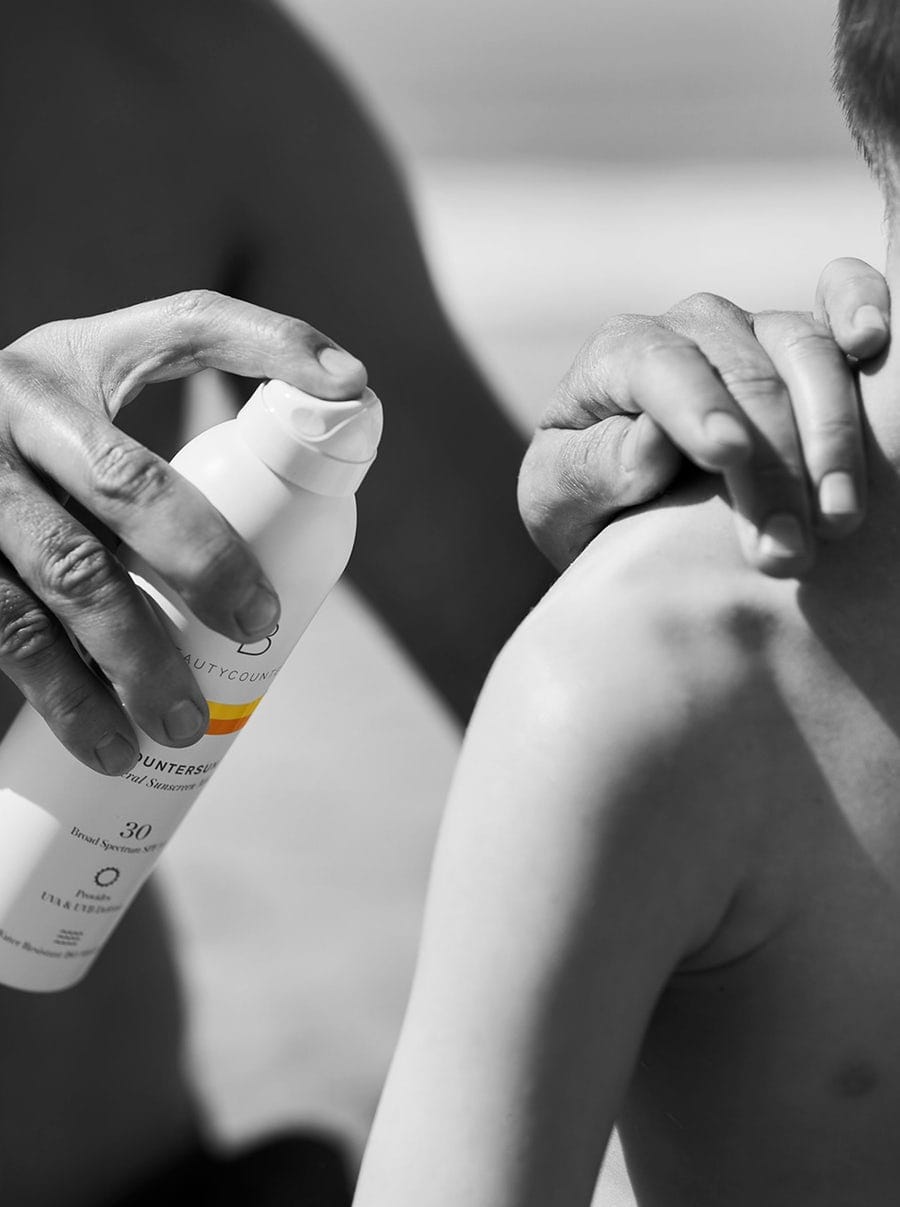
I’ll be sharing why – after examining most of the sunscreens on the market today – I believe BeautyCounter to be THE best mineral based sunblock money can buy, and – more importantly – how you can get your hands on some as well.
Here’s the thing: Information in regards to sunscreen, health, and safety can be found everywhere. Everyone has an opinion. As much as I like to respect people’s right to have an opinion, the sad truth is that not everyone has based their (sometimes STRONG) opinion on science based research.
So when it comes to health and safety (especially in regards to sunscreen), I ignore popular opinion and search for facts. I want what’s best for my family. More importantly though, I want a product I can use any day, all day, without having to worry about the chemical side effects their ingredients will cause.
After all, what is the point of using potentially dangerous chemicals to prevent the sun from killing us when – in the end – the chemicals are potentially even more harmful than the sunshine itself?
My personal questions about sunscreen started when I found out my mother, who was literally the sunscreen police when I was growing up, and an avid sunscreen wearer herself, was diagnosed with stage 4 melanoma on her face. It was devastating!
What’s more, it challenged my lifelong belief that sunscreen was always effective. So my quest for information began.
EWG Sunscreen Rating
For the past 12 years, the Environmental Working Group (EWG) has released its annual Guide to Sunscreen to help consumers choose the most effective and safest sunscreens. It provides a wealth of information to help you make an informed decision about sunblocks and sun safety.
The EWG guide also aims to educate readers on the ingredients in sunscreens that have been found to be harmful to human health. For example, it rates products on a scale of 1-10, with one being the best and ten being the absolute worst.
So, if you want to avoid information you’re simply not after, go to EWG.org and type in your brand (in this case “BeautyCounter“) and view its rating. You will see that the Beautycounter sunscreen ratings are extremely good.
This is partially why BeautyCounter became my sunscreen of choice. Their Countersun line of sunblocks are probably the safest sunscreen products sold anywhere, but more on that later!
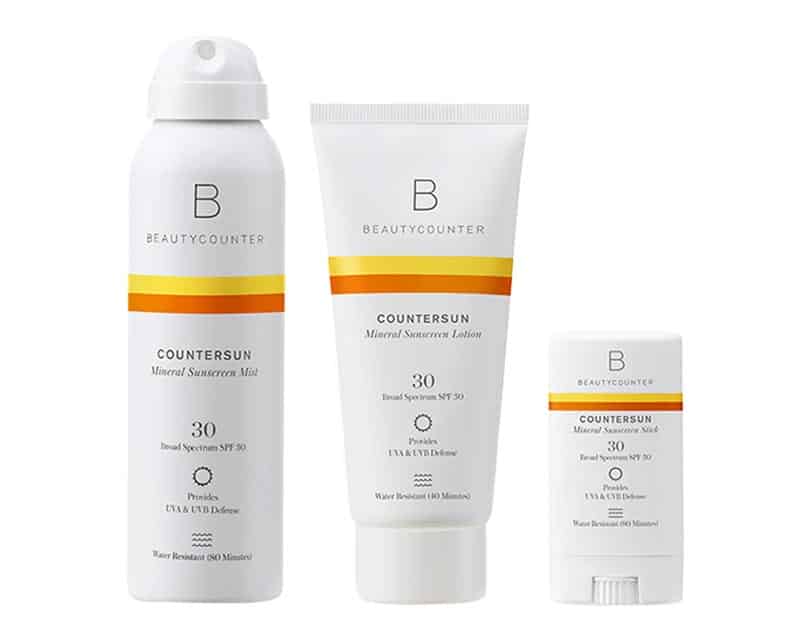
Chemical Vs. Mineral Sunscreen
Most sunscreens fall in one of two categories:
- one is chemical based
- the other is mineral based.
When I first discovered this fundamental difference, I was adamant in only using mineral based sunscreens. So I started reading the ingredient label on the back of each bottle at our local stores and – to my surprise – it was almost impossible to find mineral based sunscreens.
Besides ingredients, what is the big difference between these two categories of sunscreen?
- First, chemical sunscreens absorb into your skin and allow your skin to absorb the sun’s rays. It prevents burning by dispersing the sun’s rays through a chemical reaction.
Fancy, right? It truly is!
In the end, however, your skin still absorbs all the chemicals as well as the sun. This causes the chemicals to penetrate deep into your skin while your skin literally still takes a royal beating from the sun. Not matter how you sugarcoat this, it is NOT ideal sun protection by a long shot! - Mineral sunblock, on the other hand, uses an ingredient called zinc oxide, a natural mineral substance. This creates a barrier between your skin and the sun’s rays. It then deflects the sun away from your skin.
Not only is this process easier to explain and understand, it also means healthier skin and body when being exposed to UV rays for long periods of time. Or if sunscreen is used on a regular basis.
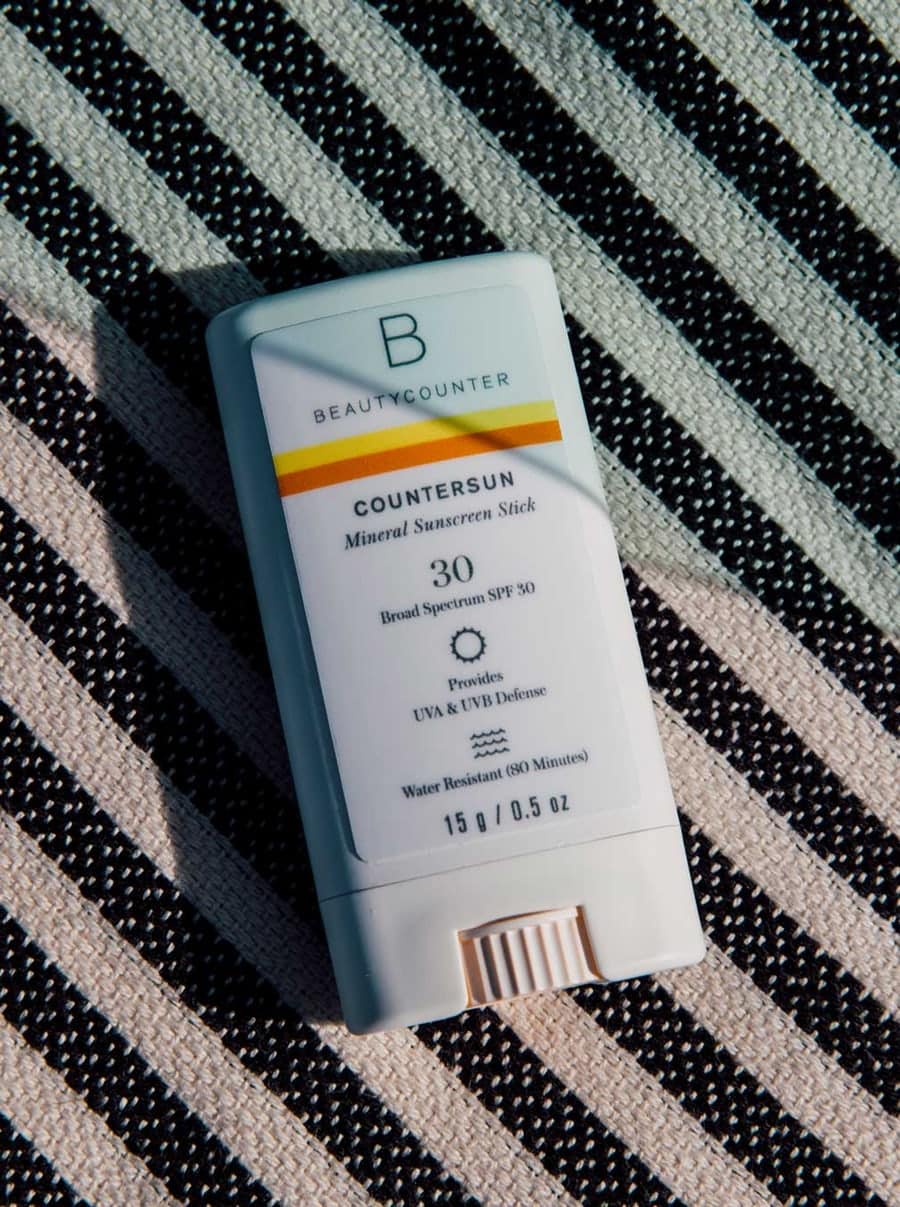
Harmful Ingredients to Avoid In Your Sunscreen
Another important thing to know when choosing your sunscreen, includes – of course – the list of ingredients.
We’re talking about ingredients like:
- Oxybenzone – It’s known to penetrate skin, disrupt hormones, cause serious reproductive issues, cause skin allergies, and traces of it is now even found in marine life (mainly from people putting it on before swimming in the ocean). New studies also find that it is bleaching and destroying our coral reefs. It is so bad that places like Hawaii, Key West (Florida), and the island of Palau will be banning all sunscreen containing oxybenzone by 2021.
- Octinoxate – It’s absorbed rapidly through skin. Studies find that it even makes it’s way into human urine, blood and breast milk. Yikes!
It is a endocrine disruptor that mimics estrogen and can disrupt thyroid functions. It has also been linked to endocrine disruption, reproductive and developmental toxicity, and organ system toxicity. - Homosalate – It penetrates skin and is antagonistic towards estrogen, androgen and progesterone.
- Octisalate – It too penetrates skin and has been linked to skin allergies.
- Octocrylene – Also penetrates skin and has been linked to serious cases of skin allergies.
- Avobenzone – Although limited skin penetration, it too has been linked to skin allergies.
According to the EWG (can you tell I’m obsessed with this resource), these ingredients prove to disrupt hormones, harm the reproductive system, and cause concern for all kinds of skin allergies.
More About Oxybenzone & Octinoxate
The thing that blows my mind the most about oxybenzone and octinoxate, is studies that show teen boys statistically having lower testosterone levels if they have high levels of oxybenzone in their system.
Other studies revealed how most Americans now test positive for oxybenzone. Believe it or not, that can all be traced back to sunscreen!
In fact, results from one study done in 2004 showed how – after topical application of oxybenzone to human volunteers – up to 1% of the applied dose was found in the urine. Meaning it’s not just our skin absorbing the chemical, but also our entire body. Needless to say it can seriously mess with our hormone balance.
I could talk about hormone disrupting chemicals for days. It is such an incredibly important topic. Hormones run so many parts of our lives that it would be a mistake to not AVOID hormone disrupting chemicals when possible. But that calls for a post all on its own. For now, I’ll take a deep breath and calm down.
Let’s just say, whenever I come across any product containing even a potential hormone disruptor, I run the other way…fast. And to keep a long story very short – when using sunscreen – we should all stick to mineral sunscreen ingredients like zinc oxide.
Which is where BeautyCounter comes in with it’s very convenient line of sunscreen products. Be it sunscreen spray, sunscreen lotion, or the now popular sunscreen stick, they have got you covered!
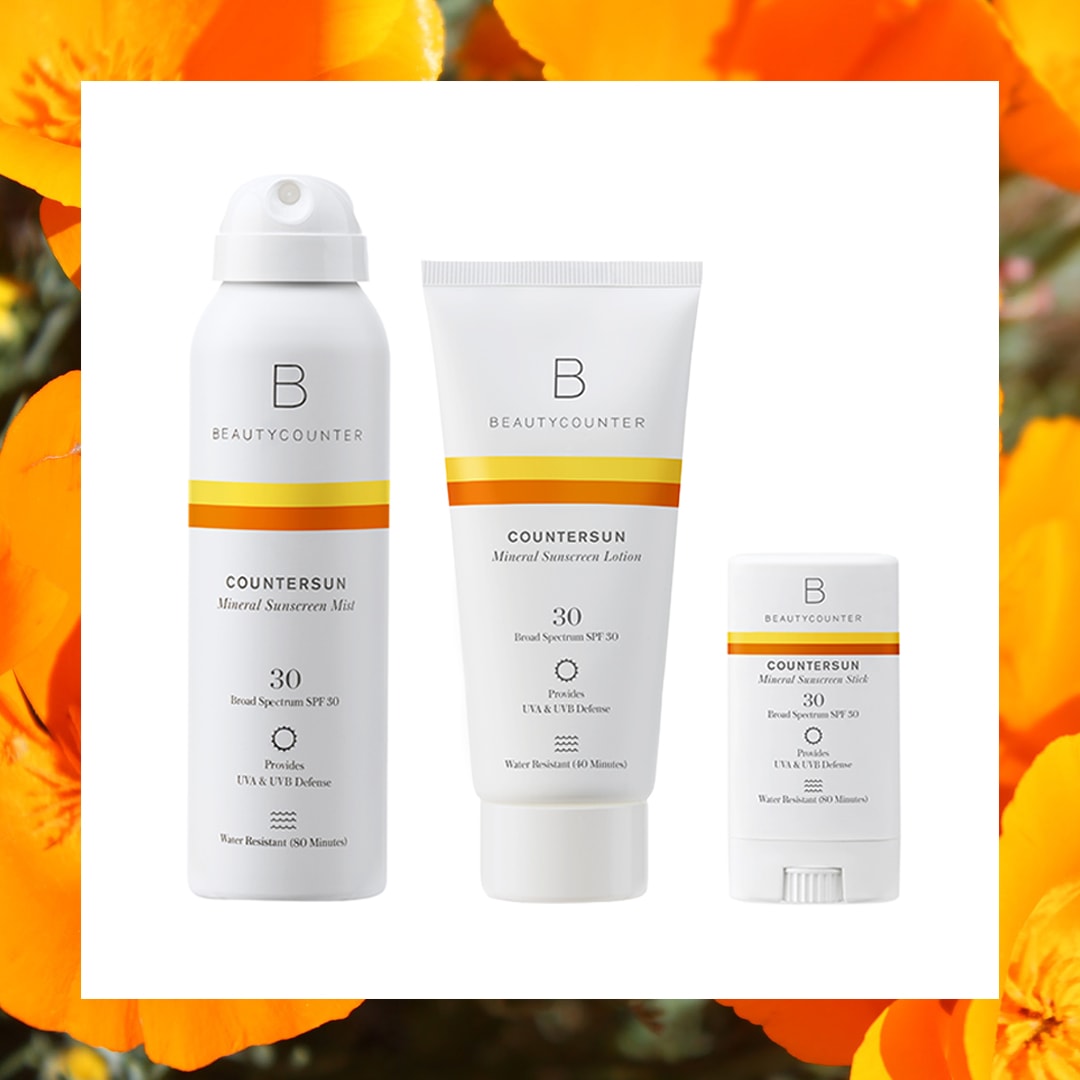
Beautycounter Countersun Sunscreen
Now that we have touched on the key scientific stuff about what makes a sunscreen safer, let’s dive a little deeper and review one of the best sunscreens on the market: the Beautycounter Countersun sunscreen lotion!
Firstly, you will be glad to know it exceeded the EWG guidelines. In fact, EWG rated this sunscreen at a 1, which is the best score a sunscreen can receive.
The Countersun mineral sunscreen stick and mineral sunscreen mist are a close 2nd and 3rd in rating as well, making them ALL some of the best mineral sunscreens you could ever use.
No hormone disrupting chemicals around here. All thanks to BeautyCounter sticking to it’s Never List.
What about other mineral based sunscreens?
If you have tried any of them, you will know some of the issues with them all too well.
- they leave a milky film on your skin.
- they are thick and sometimes hard to rub in – making them incredibly tedious to use.
- worst of all – they separate when exposed to heat for too long (not something you want lying in your bag in the sun!).
I had yet to find one that didn’t have these issues. “It beats putting hormone disrupting chemicals on my skin” I would tell myself but deep down I wished for a more hasslefree alternative.
Then I was introduced to Beautycounter Countersun. Of course I was incredibly skeptical at this point, but truth is:
- it rubbed in like a dream
- it didn’t leave a film,
- it worked!
As for the ingredients separating (as is common with most mineral based sunblocks), I have now had my tube for over 6 months and have yet to see any separation.
It simply does everything I needed (and wanted) it to do. And it does so without disrupting my already overly sensitive hormones. What more could I possibly ask for?
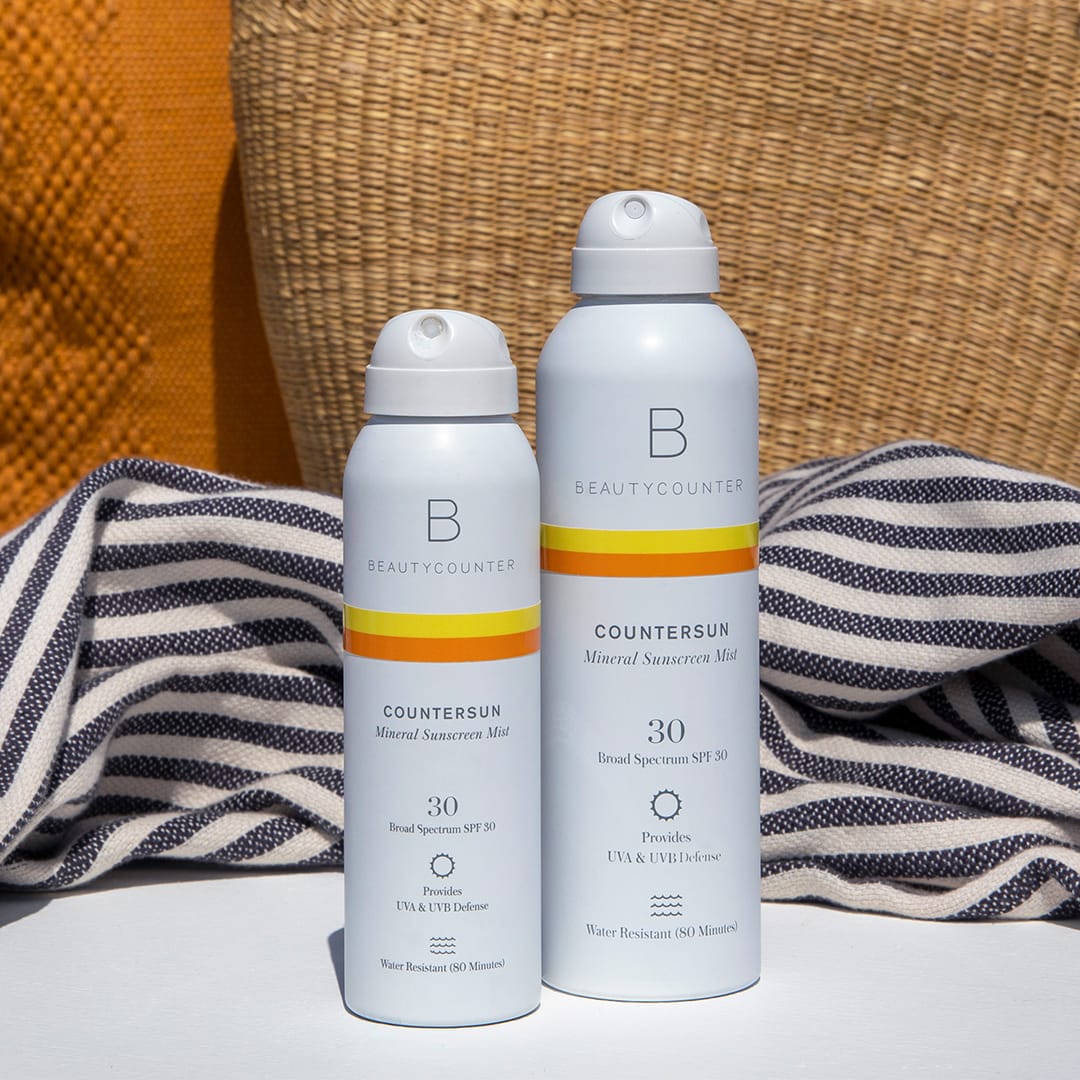
Beautycounter Countersun Ingredients
The ingredients are another reason I love the Countersun line of sunscreens. As a mineral sunscreen, the main ingredient in Beautycounter’s sunscreens is zinc oxide. Not oxybenzone or some other dangerous chemical, but a miraculous mix of ingredients that have been strenuously tested for safety.
My favorite part? This awesome mix of safer ingredients – like lemon peel extract, tangerine extract and mimosa tree bark extract – makes all of the BeautyCounter sunblocks smell delicious. They don’t smell like traditional sunscreen and I LOVE it!
Countersun Cons
I have extensively talked about the PROs of BeautyCounter sunblocks. To be completely honest and transparent with you, allow me to point out the negatives as well.
Truth is, I don’t have issues with any of the BeautyCounter sunscreens. I truly feel they live up to the EWG standard of safety and performance. They certainly exceed any and all expectations I could ever have of sunscreen products.
So what do I have an issue with?
#1.) Countersun products can’t be bought in stores!
Heck, you can’t even buy ANY non-oxybenzone based sunscreen in the average north american store!
Most shopping centers and convenience stores carry at least two different brands of traditional sunscreen that are riddled with so many questionable chemicals it’s not even funny. Why isn’t BeautyCounter selling their product in chain stores?
Seeing how much safer and better their sunblocks are, I would love for everyone to at least have the option of buying them instead of just the traditional oxybenzone loaded ones.
Instead, all BeautyCounter sunscreens have to be ordered online (here). Which is fine for the most part as they can be ordered before one really needs them, but does not give everyday shoppers – that aren’t familiar with BeautyCounter – the option to get them instead of the traditional no-good-for-you sunscreens.
I can’t get these products into stores, but I can point people like you and me (who want safer sunscreen options) into the right direction online. Hence this in depth sunscreen review post.
#2.) Countersun is Expensive!
Well it isn’t when you consider what you get and what you will be putting on your body. But it is still not cheap when compared to traditionally made sunscreens.
It truly is – in my experience and to my knowledge – the best and highest quality sunscreen money can buy. As the saying goes “you can’t put a price-tag on health”.
It’s not like these sunblocks aren’t worth every penny (they are), but still – deep down – I can’t help but wish they were competitively priced to traditional sunscreens. Mainly so that no-one would ever have to think twice about getting this far superior sunscreen instead of the sub-par options being sold in most stores today.
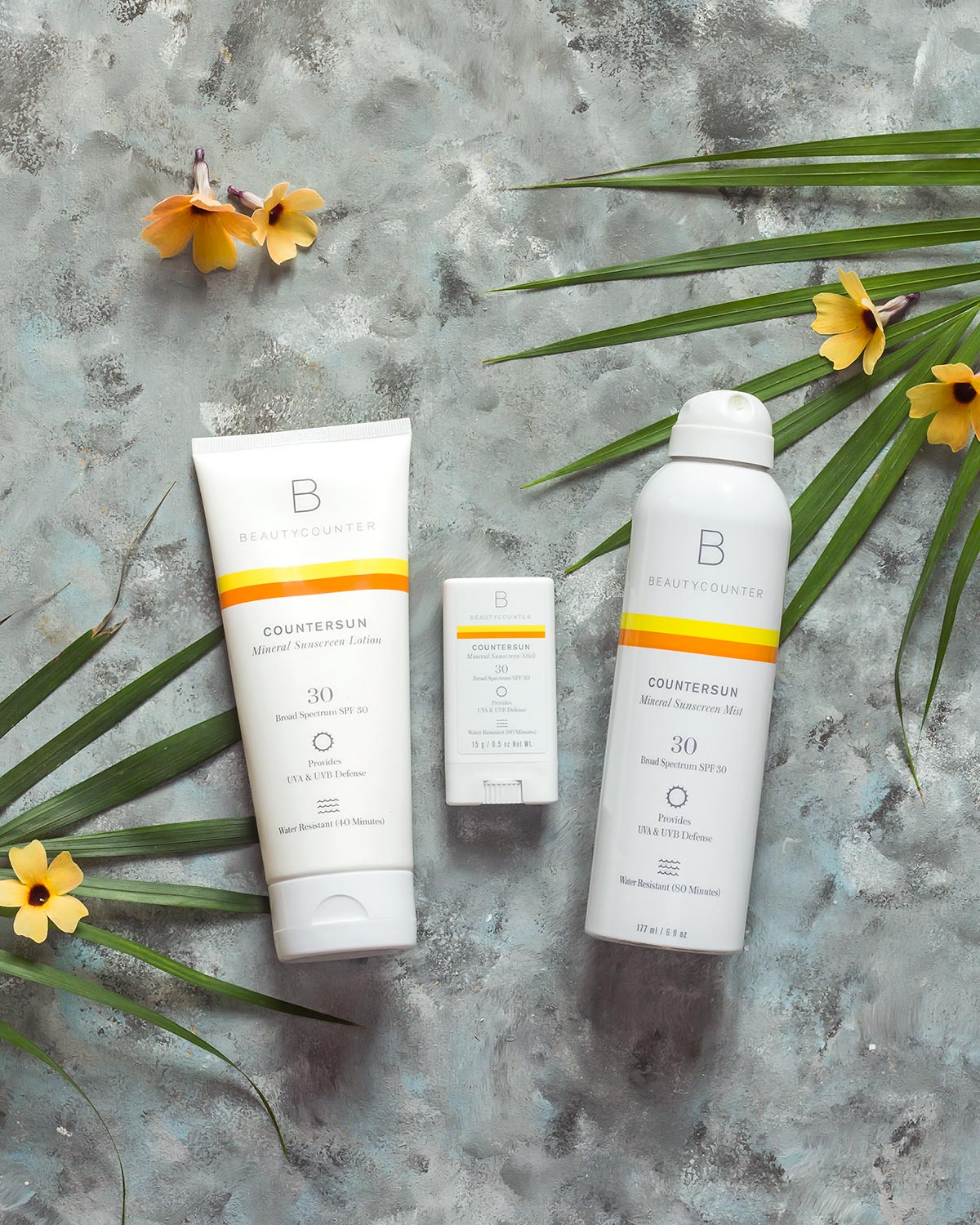
Those are my two complaints about Countersun. Neither have anything to do with the products and everything to do with the marketing and distribution channels the company has chosen to use. Although I am certain they have their reasons for that… as competing with existing giants is likely near impossible without making huge sacrifices to the product quality itself.
So, in the grand scheme of things, both of these Countersun cons are mute points. And truth is I likely would not have written this review post if all of their products were readily available in stores. So there’s that!
Countersun vs coral reefs
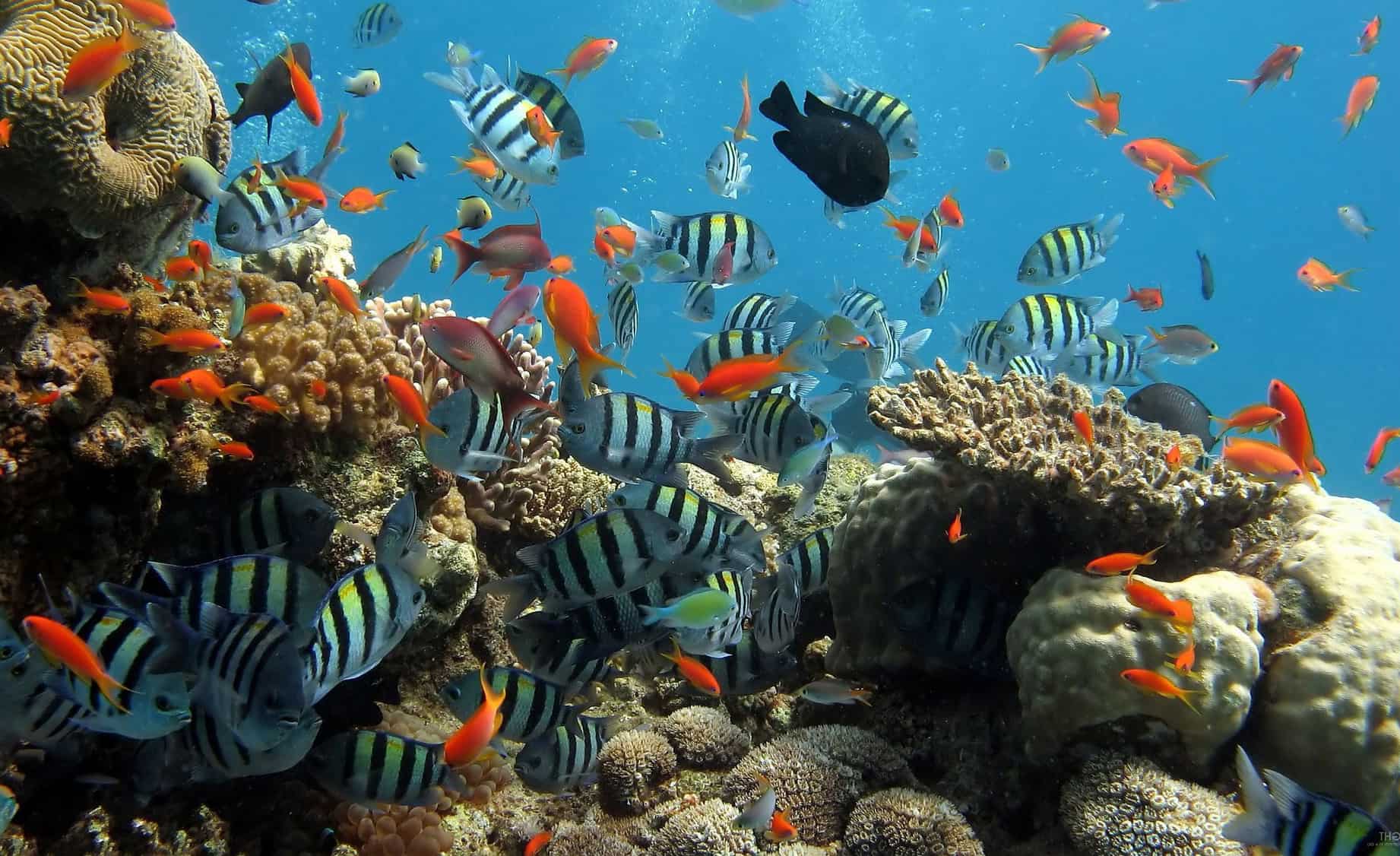
I recently came across an article explaining how the oxybenzone found in traditional sunscreens are not just harmful to the human body, but are also harming coral reefs. Who would have thought?
I’m certain with time we will discover just how harmful most of the chemicals found in traditional sunscreens are, but I for one won’t continue using them until then. And why would I when given a safer alternative today already?
Apparently the impact of oxybenzone on coral reefs is so bad that Hawaii banned sunscreens that use it. The bill that proposed the ban was signed in July of 2018 and goes in full effect on January 1st, 2021. At that point the sale of over-the-counter sunscreens containing oxybenzone and octinoxate (another questionable chemical commonly used in sunscreens), which help filter UV rays, will be prohibited.
Key West, the sunny city at the southernmost tip of Florida, signed a similar bill just this year that will go into effect at the same time. I for one am happy to hear this. I’m 100% for protecting our bodies and the nature around us at the same time.
Thanks to BeautyCounter, this is now possible!
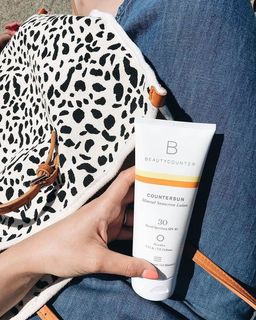
FAQ About BeautyCounter Sunscreens
I know I’ve talked a lot about sunscreens (the good and the bad), but in case I didn’t answer your specific question yet, drop me a comment below and I will update this review to answer it for you. I certainly don’t claim to know everything about sunscreens, but have a ton of experience and knowledge to draw from, so… give me a challenge!
With that said, here are answers to some Frequently asked questions about the Beautycounter Countersun line of sunscreen:
Q: Is Beautycounter Sunscreen safe for babies?
A: Yes! Since it’s a mineral based sunscreen it makes it great for babies and others with sensitive skin.
Q: How long does Beautycounter Countersun sunscreen last?
A: Around a year. All Beautycounter sunscreen is labeled with an expiration date according to the FDA guidelines.
Fun Fact: If you find a sunscreen that doesn’t have an expiration date, then will last for 3 years by default. They are only required to label with a date if it lasts less that 3 years.
Q: Is mineral sunscreen waterproof?
A: All Beautycounter Countersun sunblock products are water and sweat proof up to 80 minutes.
Q: Is mineral sunscreen safe for pregnancy?
A: Yes! For the same reason it is great for babies. As a mineral sunscreen, it acts as a barrier rather than absorbing into your skin and then your bloodstream.
Q: Is Beautycounter Countersun sunscreen biodegradable?
A: Oh yeah sister! Because it’s main ingredient is Zinc Oxide and Beautycounter operates as a certified B corporation, which means they are dedicated to saving the planet too!
Q: Does Beautycounter Countersun sunscreen expire?
A: Yes, which is a good thing. All Beautycounter sunscreen has an expiration date that you should listen to because they always want to guarantee the highest performance of their product.
Q: Where can I buy Beautycounter Countersun sunscreen?
A: You can buy Beautycounter sunscreen directly through Beautycounter.com
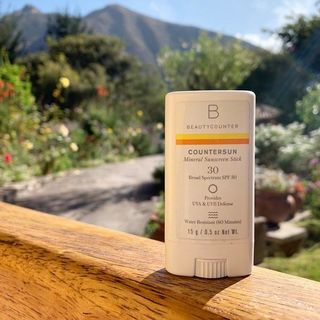
Conclusion
Overall, on a scale of 1-10, I would give Beautycounter Countersun a 10/10 and the #1 sunscreen for families. In comparison to sunscreens as a whole, nothing comes close in terms of safety and performance.
Furthermore, in comparison to other mineral-based sunscreens and natural sunscreen alternatives, it ranks right up there. This is probably the only sunscreen I will use from here on out!
